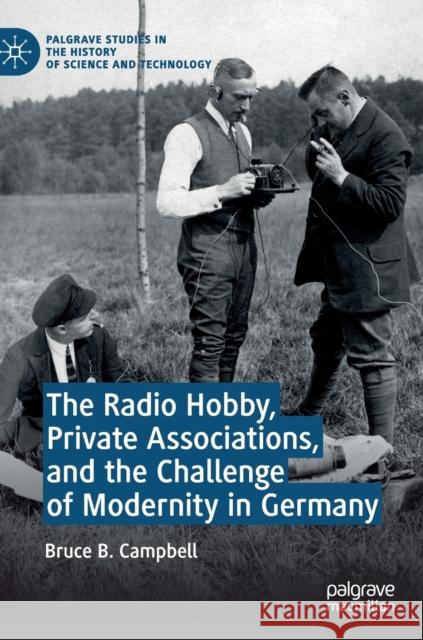The Radio Hobby, Private Associations, and the Challenge of Modernity in Germany » książka
topmenu
The Radio Hobby, Private Associations, and the Challenge of Modernity in Germany
ISBN-13: 9783030265335 / Angielski / Twarda / 2019 / 369 str.
The Radio Hobby, Private Associations, and the Challenge of Modernity in Germany
ISBN-13: 9783030265335 / Angielski / Twarda / 2019 / 369 str.
cena 287,12 zł
(netto: 273,45 VAT: 5%)
Najniższa cena z 30 dni: 287,12 zł
(netto: 273,45 VAT: 5%)
Najniższa cena z 30 dni: 287,12 zł
Termin realizacji zamówienia:
ok. 20 dni roboczych.
ok. 20 dni roboczych.
Darmowa dostawa!
Kategorie BISAC:
Wydawca:
Palgrave MacMillan
Seria wydawnicza:
Język:
Angielski
ISBN-13:
9783030265335
Rok wydania:
2019
Wydanie:
2019
Numer serii:
000423748
Ilość stron:
369
Waga:
0.60 kg
Wymiary:
21.01 x 14.81 x 2.24
Oprawa:
Twarda
Wolumenów:
01
Dodatkowe informacje:
Wydanie ilustrowane











